
Hana El Zanen, 27, is the mother of one-year-old Hassan, who was born using IVF. Her husband, Tamer, 29, was jailed for six life sentences. He was arrested in this very room. Gaza, Palestine.
This article appeared in the May issue of VICE magazine. Click HERE to subscribe.
There are between 6,000 and 7,000 Palestinians—classified as “security prisoners”—serving time in Israeli prisons. Israel detains them if their alleged or convicted offenses are deemed threats, or potential threats, to national security. Denied conjugal visits, these Palestinian prisoners see their immediate family for just 45 minutes every two weeks, if at all. While kept physically separated from visiting spouses and adults, inmates can play with their children for ten minutes at the end of each session. During these short visitations, some of the men have smuggled sperm to their wives in order to conceive children through in vitro fertilization (IVF).
Videos by VICE
Until April 2013, religious authorities in Palestine had not clarified their position on IVF. Over time, however, things changed, and the procedure is now accepted in specific circumstances. Issuing a religious edict in April 2013, the Palestinian Supreme Fatwa Council detailed the restrictions, limiting the process to those men with a long sentence, a marriage consummated before imprisonment, and no other way for pregnancy. The husband and wife also need to fill out paperwork, and families are expected to provide multiple witnesses confirming that the sample belongs to the man. As a result, a greater degree of openness now exists for those who have had children in this manner.
Now, fertility clinics in the occupied territories increasingly offer IVF treatment to prisoners’ wives free of charge. The Razan fertility clinic in Nablus and the al Basma fertility clinic in Gaza have frozen numerous sperm samples recently smuggled from behind bars. In the past four years, an estimated 40 babies have been born through IVF to the wives of Palestinian inmates.
Lydia Rimawi told me that she and other women in the program believe that one day the prisoners will be released, and when they do return home, they should have a family waiting for them. Combined with what she described as a cultural belief that wives are not able to cope with everyday life alone, this notion encourages them to take such measures to become pregnant. She felt that becoming pregnant while her husband was imprisoned would help continue the Palestinian resistance.
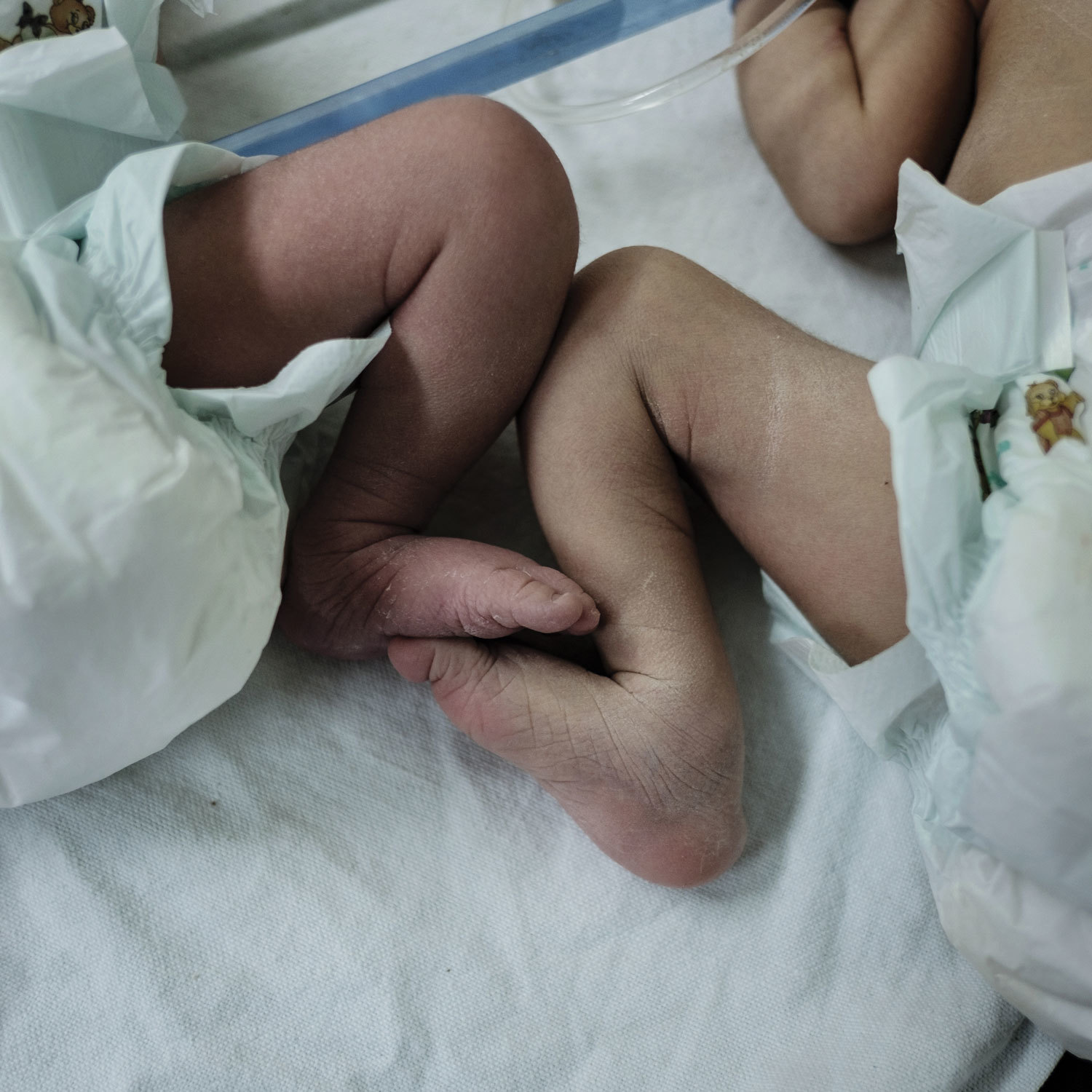
Twins, born through IVF, at the main hospital in Gaza City. As with IVF births elsewhere, twins are far more common for those undergoing this treatment than in the general population. Gaza, Palestine.
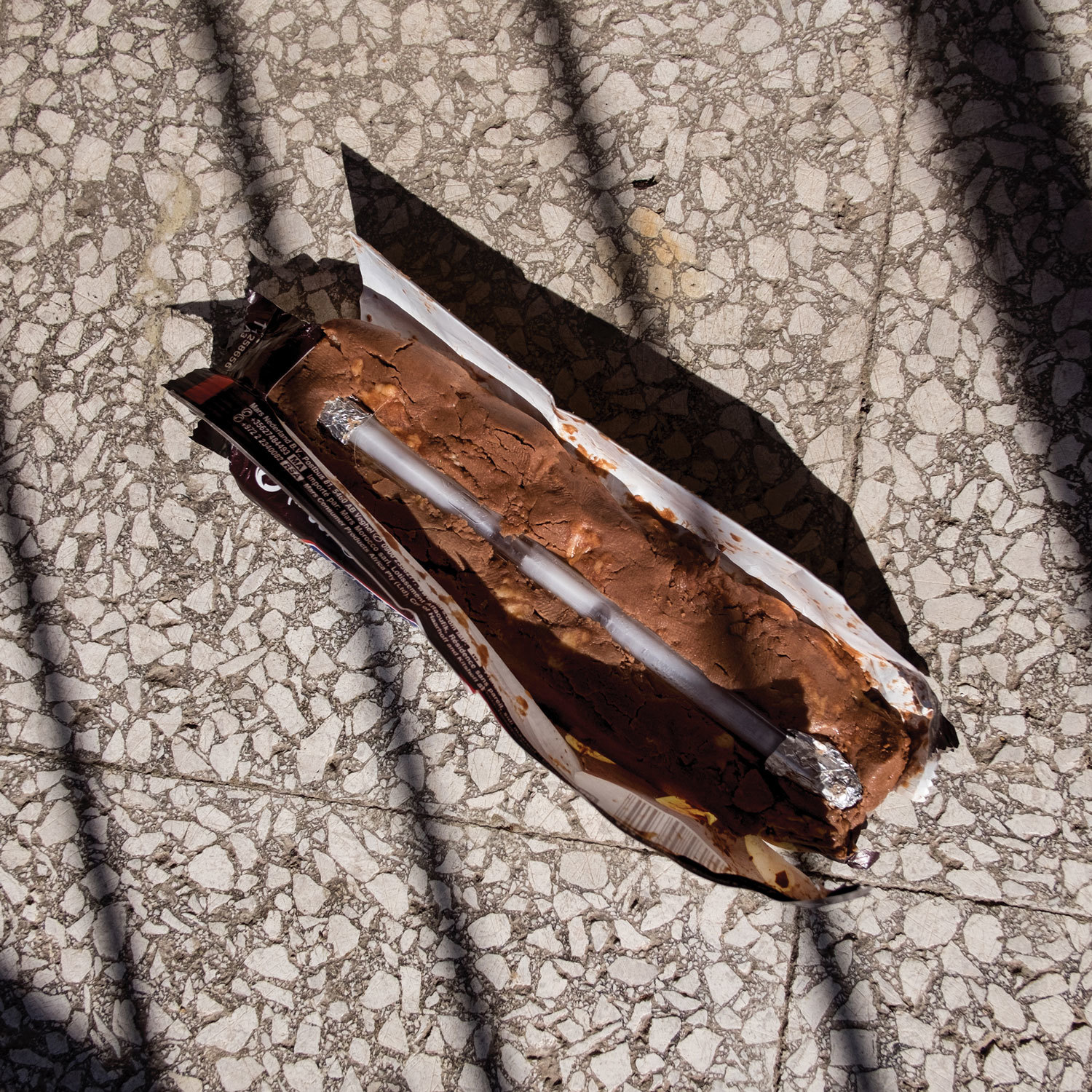
Prisoners store seminal fluid inside tubes or old pens, which they hide inside snacks. During the ten minutes of permitted playtime, they pass the snacks to their children, practicing one of the methods used to smuggle their sperm out of prison. Bethlehem, Palestine.
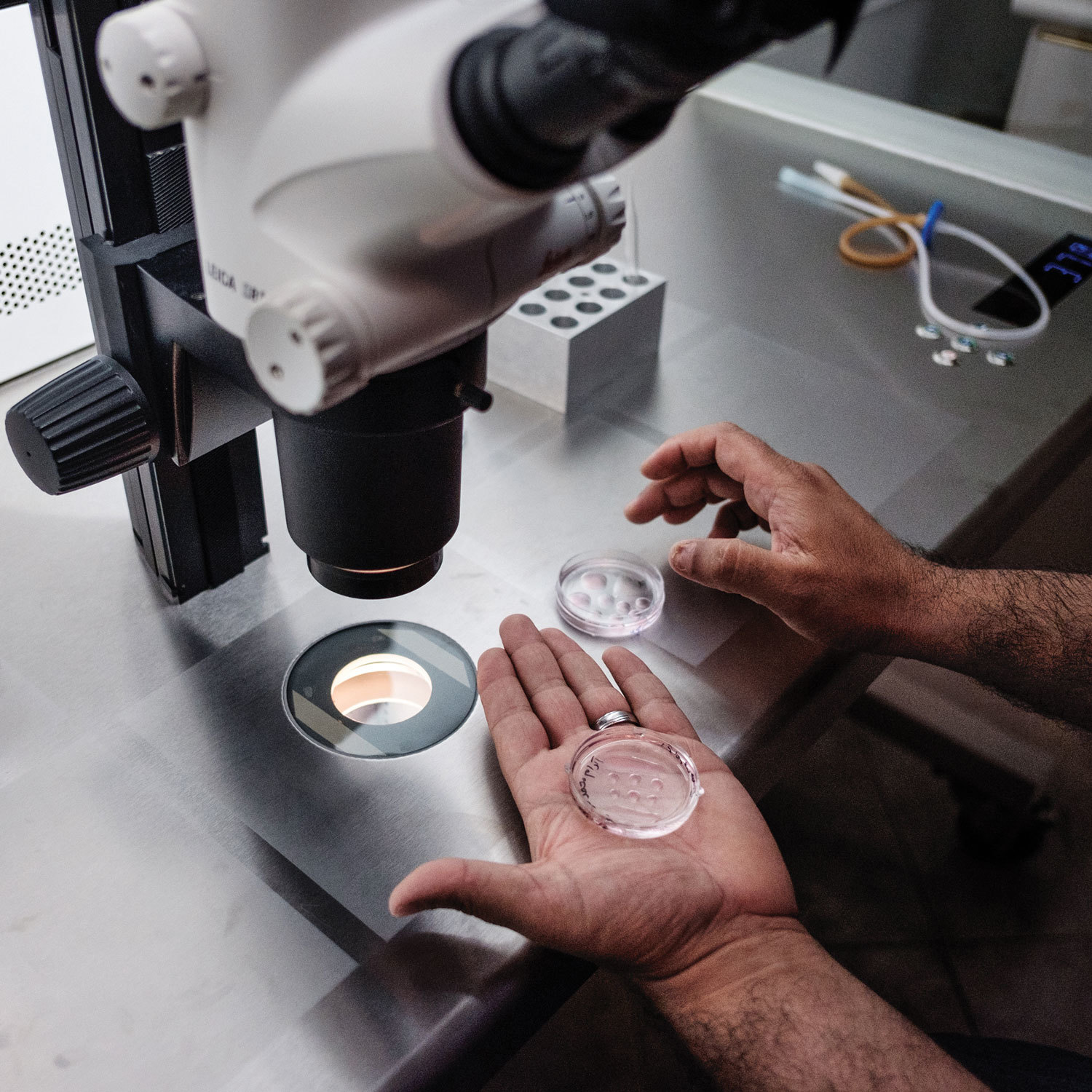
In the IVF treatment facility at Razan Medical Center, the most famous clinic for infertility treatment in Palestine, a technician isolates sperm from a sample for freezing. Nablus, Palestine.
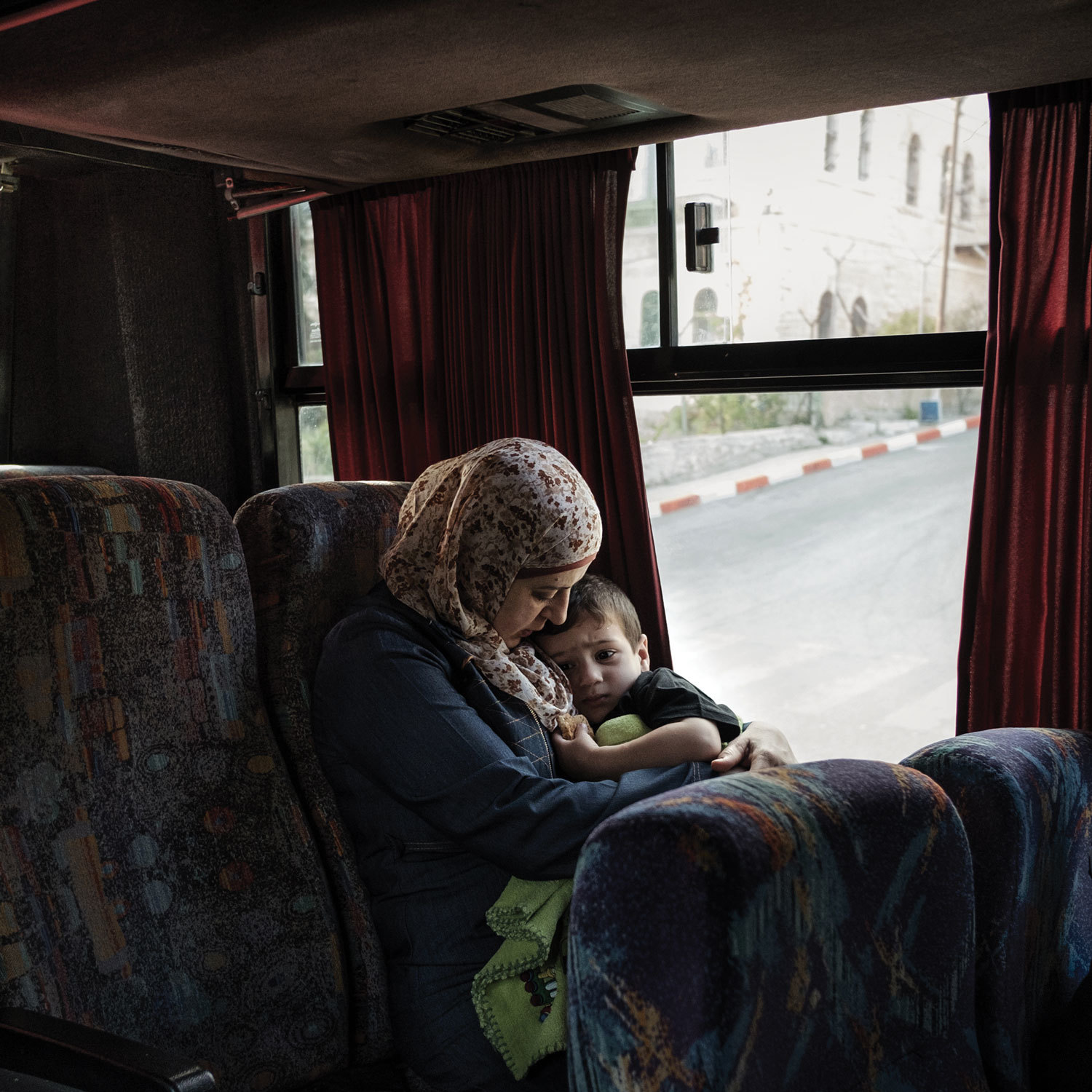
Lydia Rimawi with her two-year-old son, Majd, who was born through IVF. Rimawi’s village rests between Ramallah and Nablus. She leaves home at 5 AM, taking a taxi to the main road, where she boards a bus to Ramallah. She goes on a second bus, organized by the Red Cross in partnership with the Prisoners Club, to the Israeli border, where she crosses on foot. From the border, she rides a third bus to the prison. Rimawi’s husband was arrested in 2001 and sentenced to 25 years in prison. Rima, Palestine.
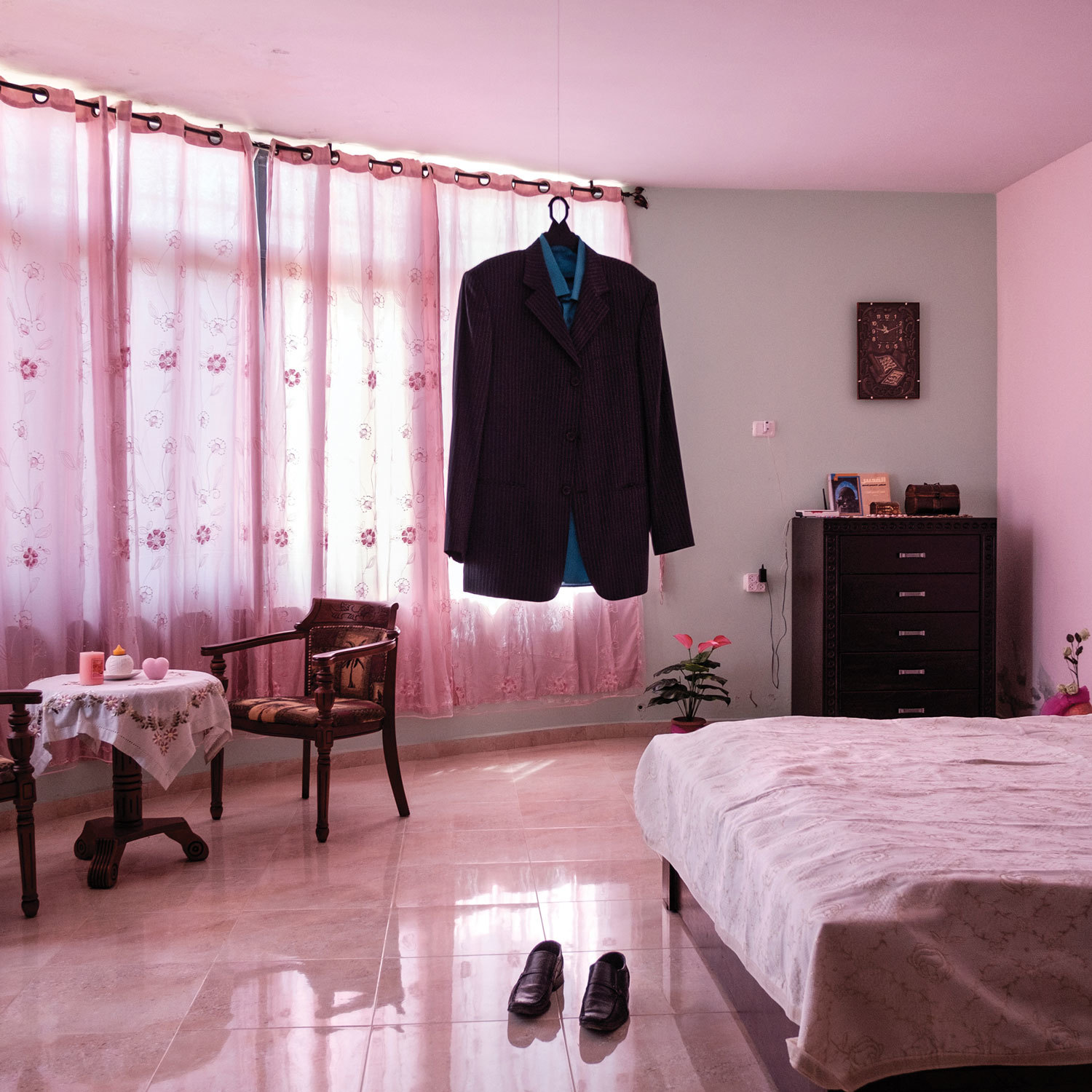
Signs of a life suspended in the home of Iman Barghouti, whose husband is imprisoned for life. She keeps their home and his belongings ready for his return at any moment. Ramallah, Palestine.
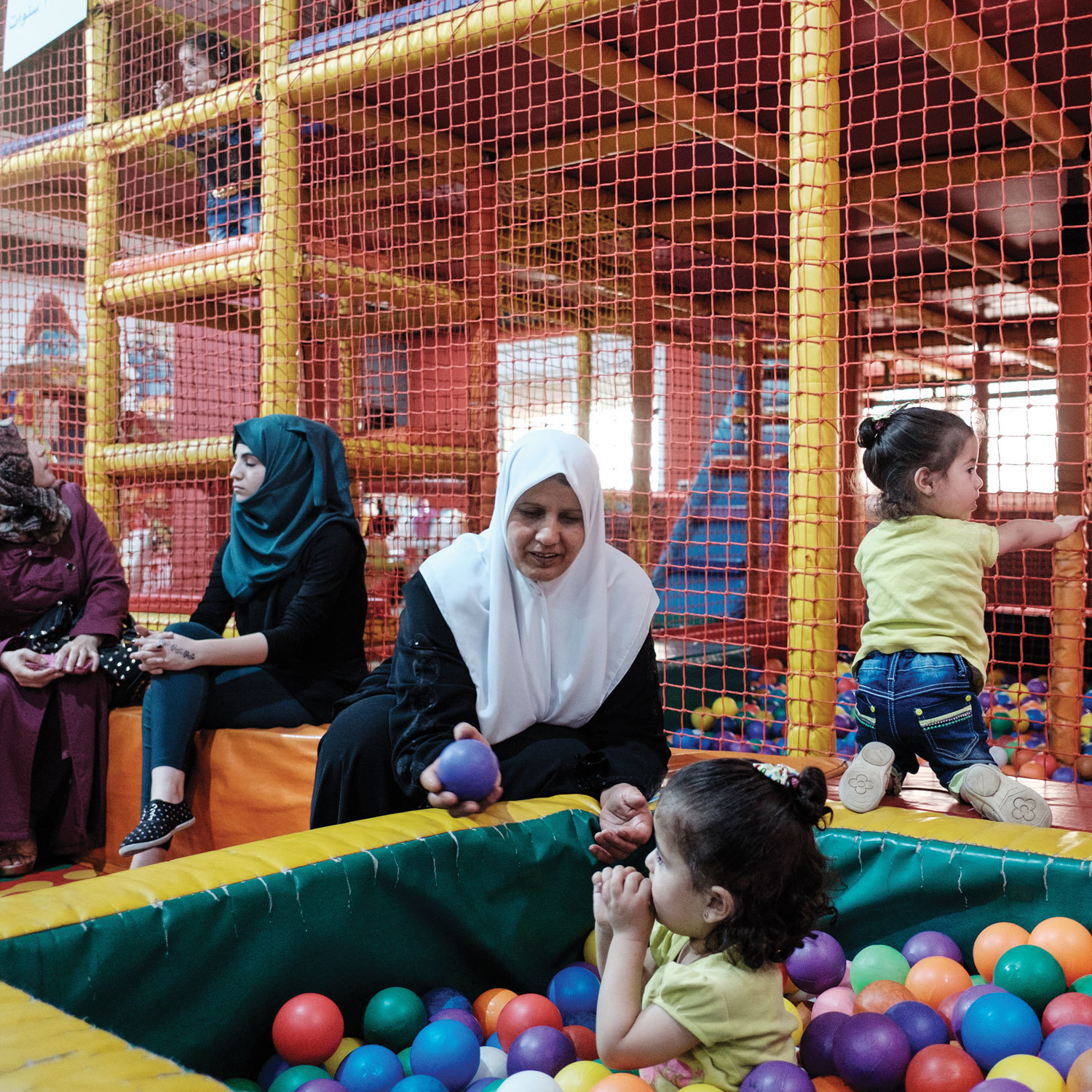
Fateh, 54, is the grandmother of twins born through IVF. Bethlehem, Palestine.
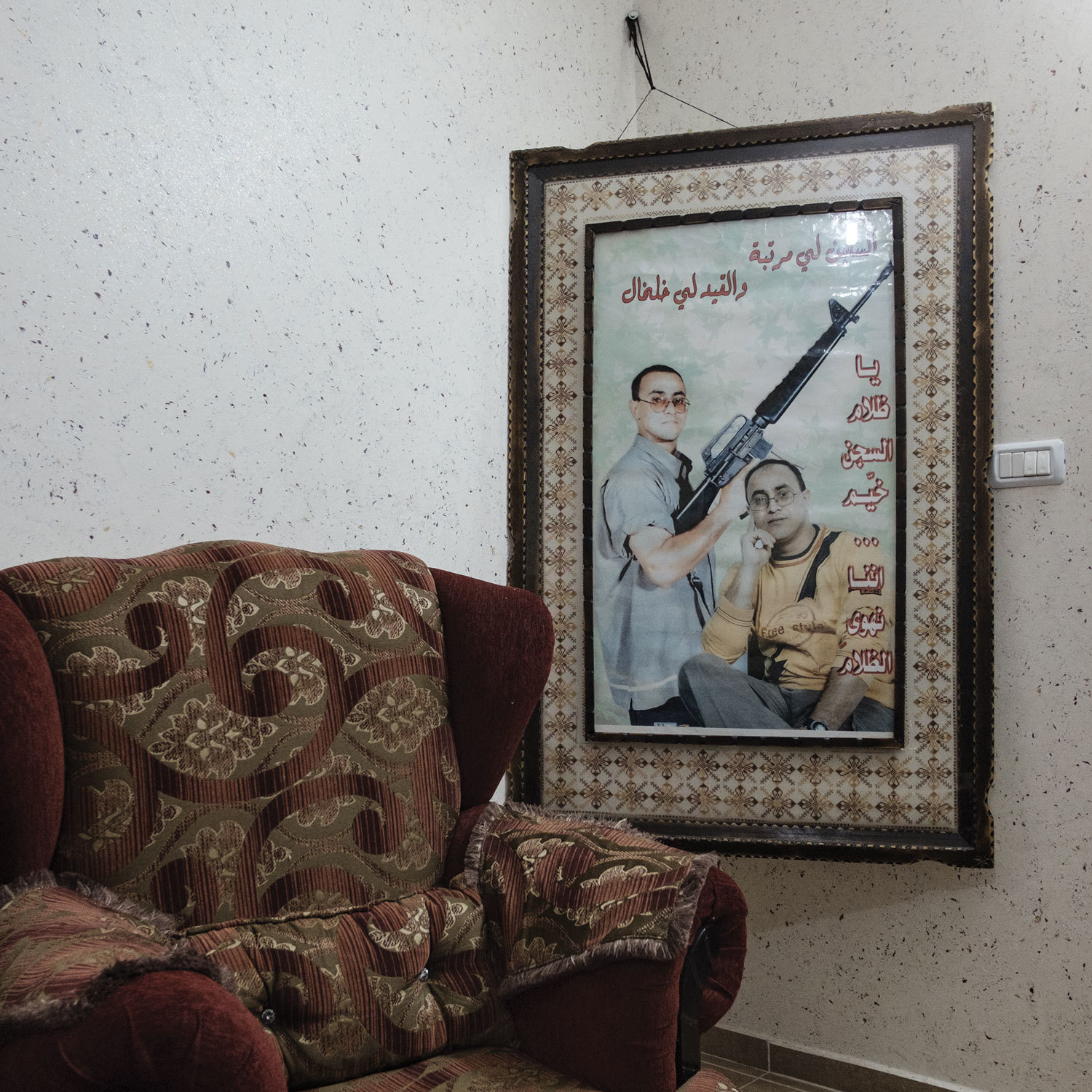
A portrait of Atta Abdelgami, 45, imprisoned for three life sentences. He is the husband of Rula Ali Ahmed Abdelgami, 32. The couple have two children via IVF. Tulkarem, Palestine.
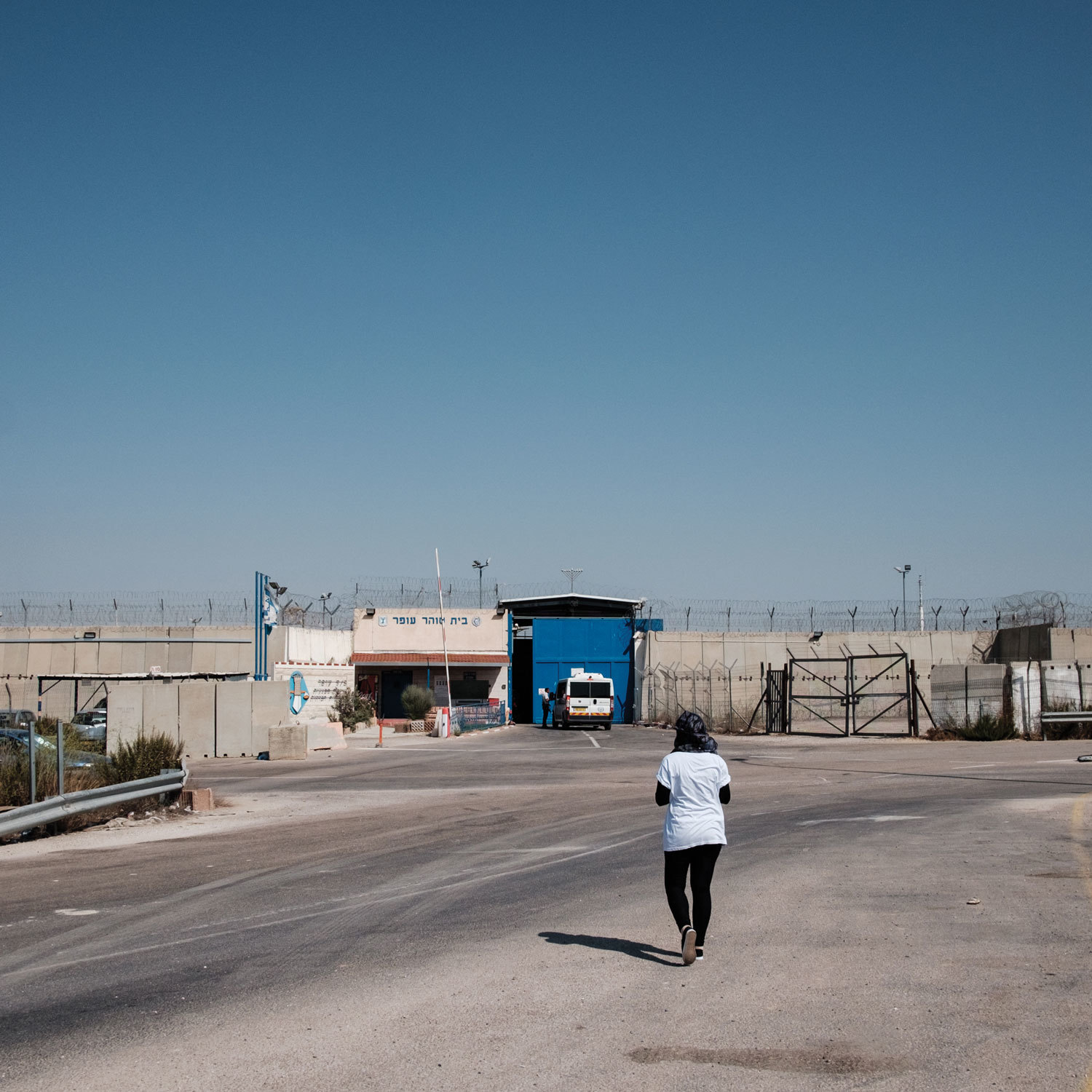
A woman visits her husband in Ofer Prison, the closest one to Ramallah, home to many Palestinian inmates. West Bank, Palestine.




